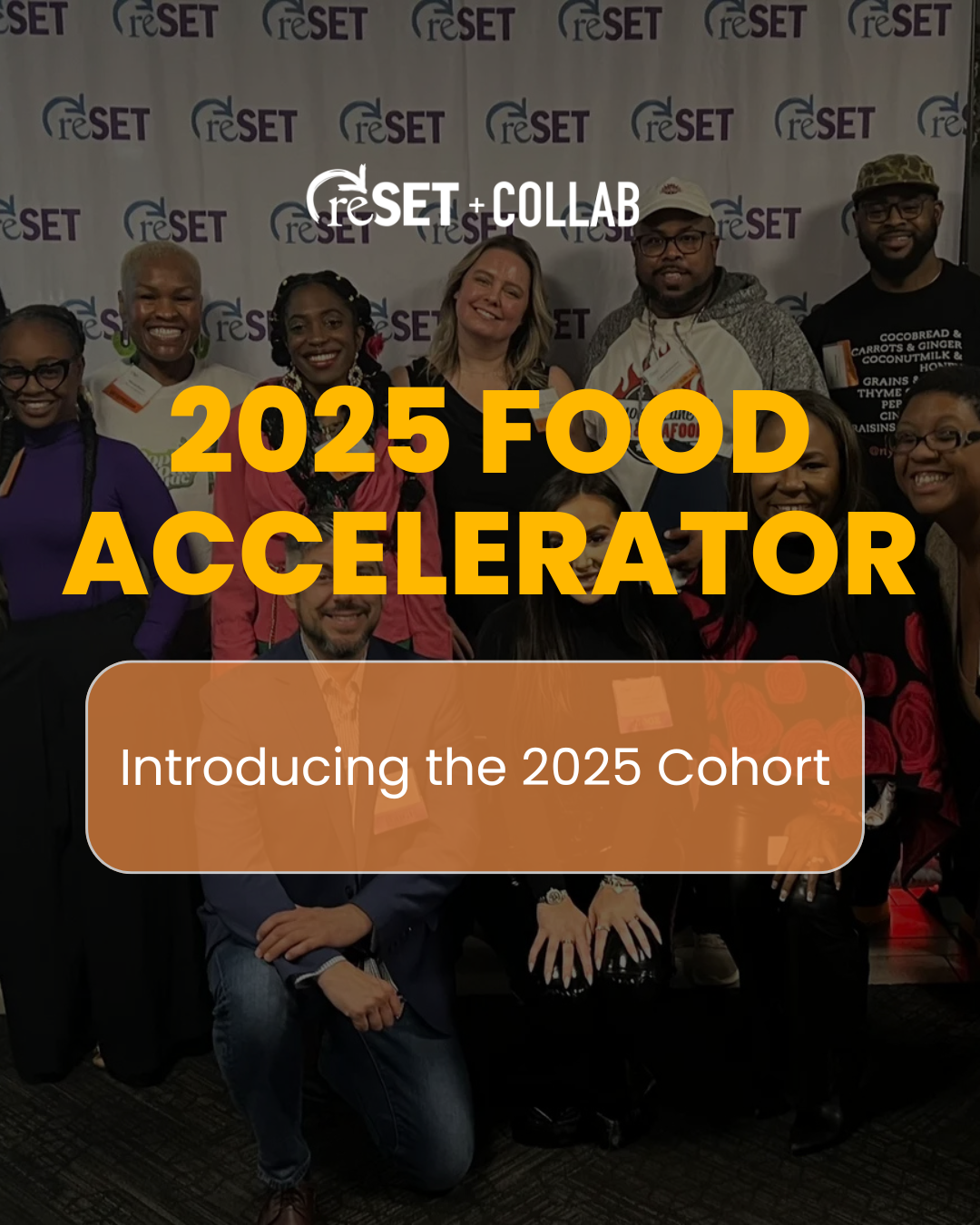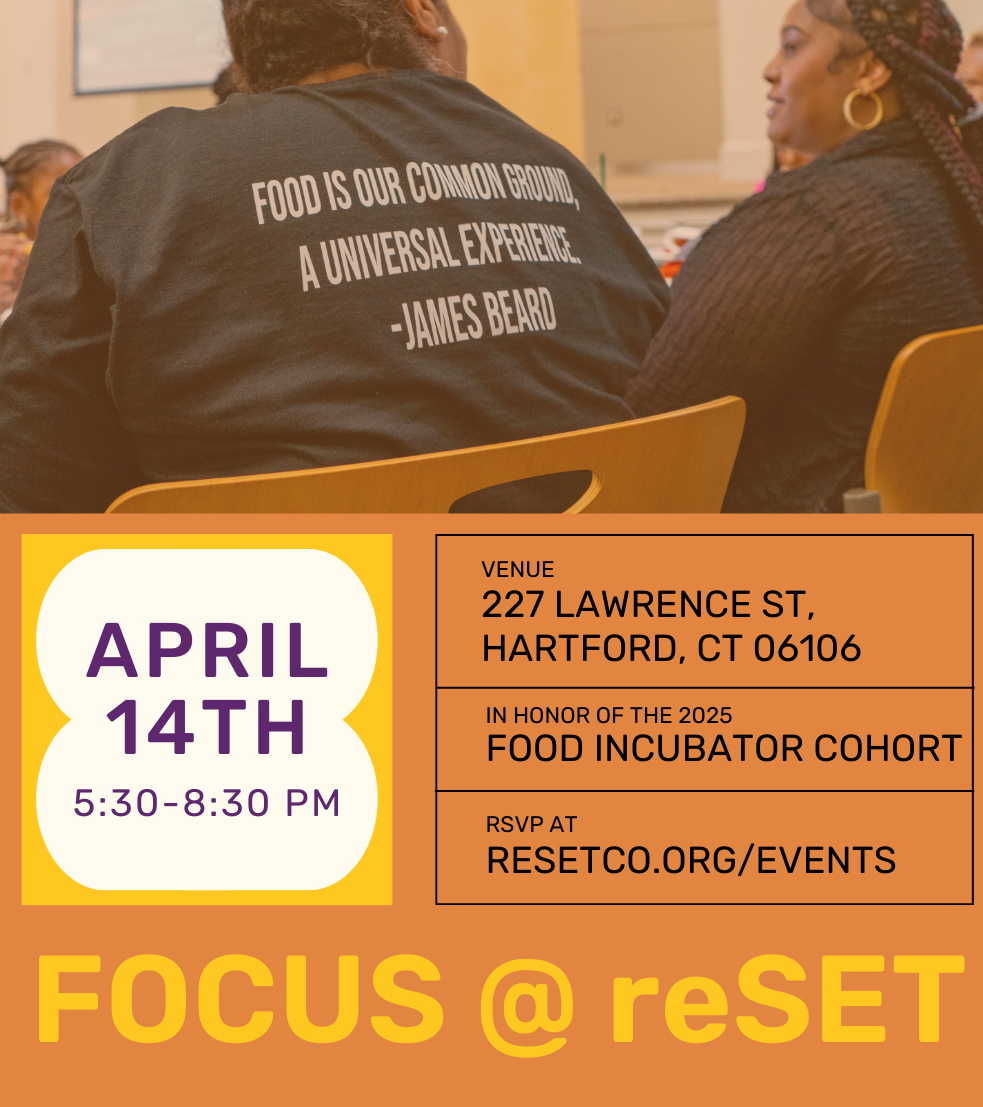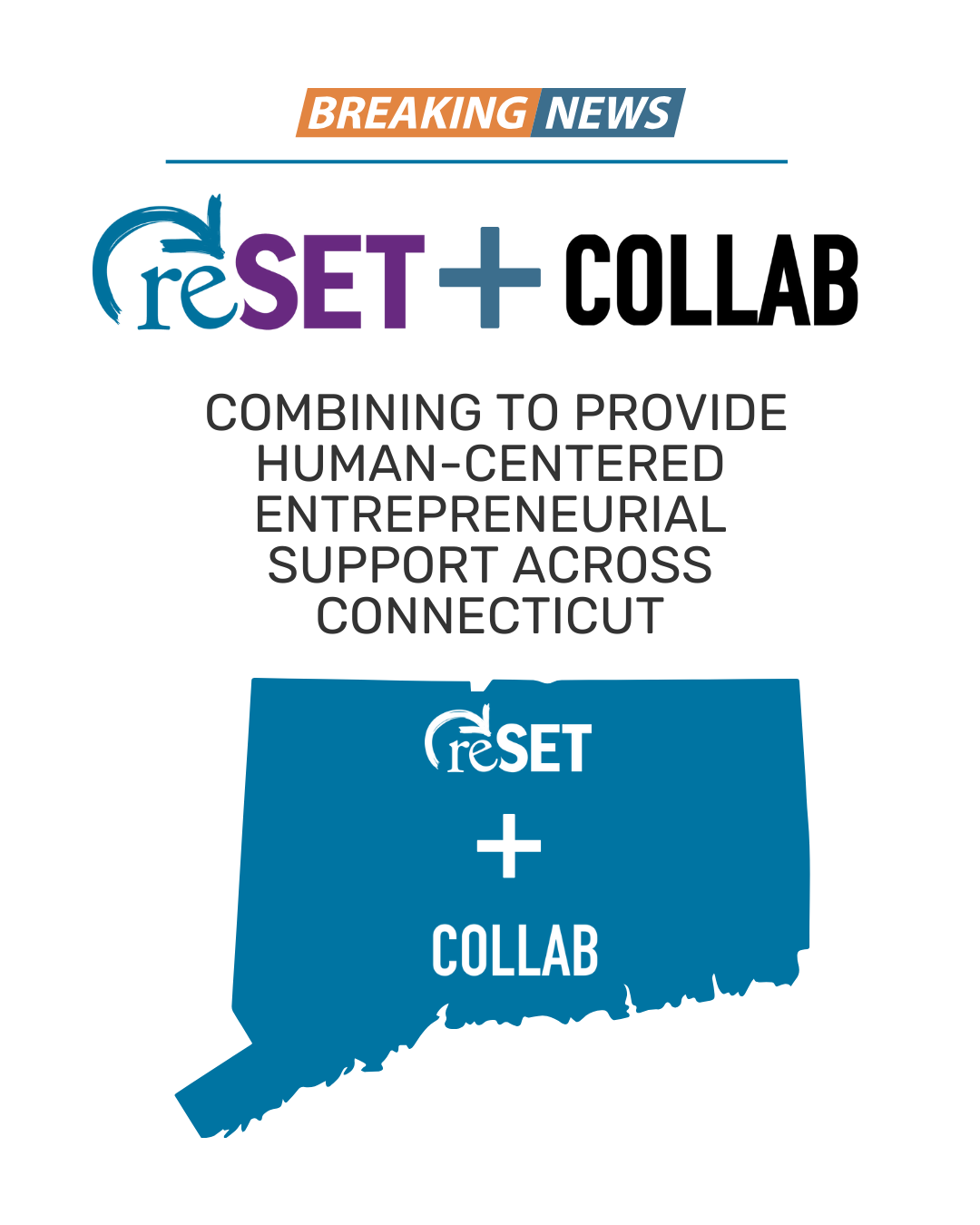This guest blog post was written by Maureen Farmer, Founder, The Farmer’s Garden as a special highlight of our Healthy Communities Design Lab event: Food for Thought on June 11th @ 5:30 pm.
Connecticut communities are facing multiple difficult food challenges: food deserts across the state, hunger, food insecurity, obesity, and lack of access to healthy food– just to name a few. These are the kind of challenges that motivate the numerous hard-working organizations within our state that are strengthening communities through building a healthier, more sustainable food system.
Let’s not forget, these are also the significant social and environmental challenges that motivate Connecticut social entrepreneurs to find solutions, and scale positive impact through their businesses.
Food Waste Across the US
According to a paper published in August 2012 by the National Resources Defense Council, 40 percent of food grown in the United States is wasted. That’s $165 billion of uneaten food ending up in landfills each year where it is the largest component of municipal solid waste. Reducing this amount of waste by 15 percent would be enough to feed 25 million people a year.
How can this be happening in a country where one out of every six people don’t always have enough to eat?
Food is wasted in many ways including:
- Produce may not be harvested due to damage by pests, disease or weather. Sometimes it’s not harvested for economic reasons – the farmer cannot cover the cost of labor and transportation due to low selling prices. On average, approximately seven percent or six billion pounds of fresh produce in the US are not harvested each year.
- Estimated losses within grocery stores accounted for 43 billion pounds or approximately ten percent of the total retail food supply in 2008. The US Department of Agriculture (USDA) estimates that supermarkets lose $15 billion in sales annually from unsold fruits and vegetables.
- The USA also estimates that households and food service businesses (restaurants, cafeterias and caterers) lost 86 billion pounds or 19 percent of the total US retail food supply. Restaurant diners don’t eat 17 percent of the meals served and only 45 percent of potential leftovers are taken home.
- American households throw out approximately 25 percent of the food and beverage groceries they purchase. A family of four spends between $1,365 and $2,275 an uneaten food annually.
All This Food Wasted and Many People Are Still Hungry
Unfortunately, according to recent estimate only ten percent of edible wasted food is recovered each year and distributed to the poor and hungry across the country. Some of the issues making recovery of food difficult include liability concerns, distribution and storage logistics and funds needed to collect and distribute it.
The USDA also keeps track of the number of Americans who live in food insecure households. A food insecure household is one in which there is reduced quality, variety or desirability of diet. The worst cases also include disrupted eating patterns and reduced food intake.
In 2011, 50.2 million Americans resided in food insecure households (33.5 million adults and 16.7 million children). Households with children had a higher rate of food insecurity (20.6 versus 12.2 percent). One million households consisting of a senior living alone (8.8 percent) were food insecure.
In 2011, 5.1 percent of all US households (6.1 million) received food from a food pantry at least once. Only 57 percent of food insecure households participated in one of the three major Federal food assistance programs.
A Look at Hunger in Connecticut
According to the Bureau of Business and Economic Research, Connecticut has consistently ranked highest among the US states in per capita income with an average income level of $58.908 in 2012. Yet the number of children eligible for free or reduced school meals provided by the CT State Department of Education is shockingly high. A child is eligible for subsidized meals if they are on SNAP/Food Stamps, Temporary Assistance for Needy Families (TANF), or live in a household where income is 130% or 185% of the poverty level. The table below contains data provided by End Hunger Connecticut.
Town% of Students Eligible for Free or Reduced School Meals (2010 – 2011)Bridgeport98.8
Hartford90.7
New London85.1
Waterbury79.8
New Haven77.8
Windham75.5
New Britain72.7
Meriden66.6
Ansonia60.4
East Hartford59.0
The number of eligible students is also greater than 50 percent in West Haven, Putnam, Derby and Manchester. In only 21 of the 169 towns in Connecticut are five percent or less of the students eligible for school meal assistance. How can our wealth and food distribution system be so disparate that within the largest city in the wealthiest state a mere one percent of families can afford to adequately afford to feed their children? This is very unsettling to me and I hope it also alarms you.
Connecticut Social Enterprises Solving Food System Challenges
CT has a lot of hard working organizations and entrepreneurs that are strengthening our food system through innovative programs and business solutions. For example, Wholesome Wave, headquartered in Bridgeport, CT started an innovative program in Connecticut, California, New York and Massachusetts. They double the value of U.S. Department of Agriculture’s Farmers Market Nutrition Program (FMNP) (issued to seniors and participants of the Special Supplemental Nutrition Program for Women, Infants and Children) and the Supplemental Nutrition Assistance Program (SNAP, formerly known as the Food Stamp Program) coupons towards the purchase of locally grown, healthy food.
This successful idea has now been implemented in 24 States and the District of Columbia. It also helps small, local farmers by increasing their revenue and expanding their market to include additional customers.
Also tackling the challenges of food equity and access to healthy food is Hartford Food Systems, and on a neighborhood scale, Billings Forge Community Works. Other inspiring organizations in CT that are tackling farm viability, food policy, and building a strong foundation for local agriculture are CT NOFA, CitySeed, and Foodshare.
Another Simple Solution; Food Entrepreneurs
The Farmer’s Garden (www.thefarmersgarden.com) is an online place to make in-person connections between gardeners, want-to-be gardeners and people interested in healthily eating across the US. Free membership provides access to search and post classified ads to share, trade or sell excess homegrown produce, tools, or gardening space with other members in one’s local area. Food banks and individuals can also post wanted classifieds. This will enable more people to have access to home gardens and healthier food. On a small scale, The Farmer’s Garden will make high quality homegrown fruits and vegetables available to more people at low or no cost.
The Farmer’s Garden currently has over 700 members. The next time you have extra garden produce or are looking for homegrown vegetables or fruit, visit The Farmer’s Garden and help make a difference. We want to grow community, one tomato at a time.
Maureen Farmer is a Connecticut master gardener and founder of The Farmer’s Garden. The Farmer’s Garden team won the social enterprise award at Start Up Weekend Hartford 2012 business competition. Maureen is an avid vegetable gardener and also believes that you can never have too many flowers in your yard. Maureen is also a graduate of the reSET Accelerator Program.








